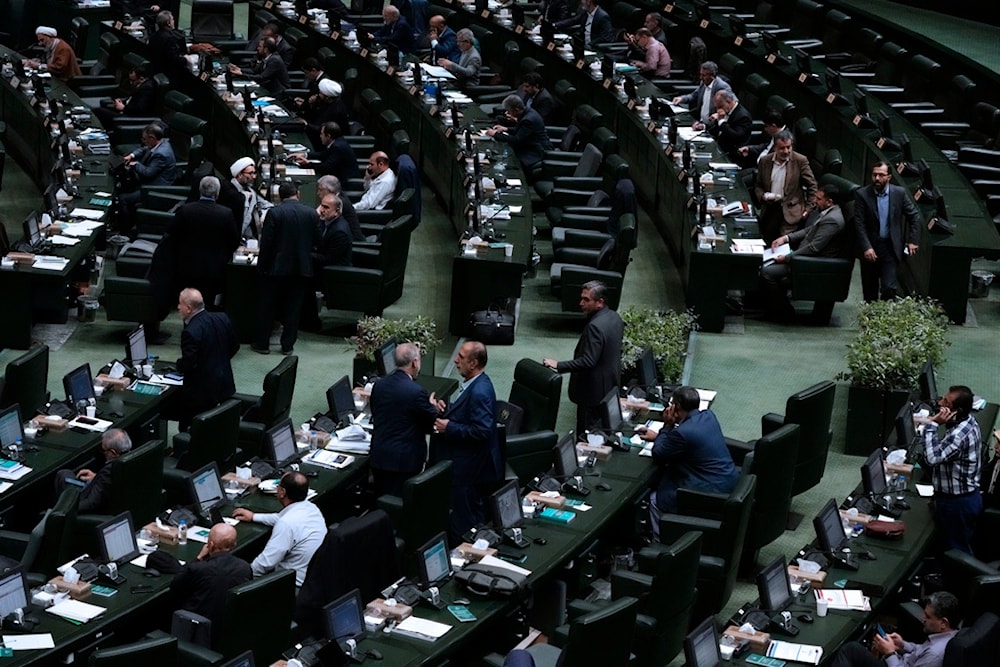Talks with Washington harmful but not forbidden: Iran parliament
Iran's Commission of National Security and Foreign Policy warned that if negotiations with any country result in harm to Iran's sovereignty or economic well-being, then pursuing such talks would be unjustified and irrational.
-

Iranian lawmakers sit in an open session of parliament to debate on next year's budget bill of President Masoud Pezeshkian, in Tehran, Iran, Tuesday, October 29, 2024. (AP)
Iran's Commission of National Security and Foreign Policy has declared that engaging in negotiations with the United States is not prohibited but is ultimately detrimental to national interests.
In a statement released on Monday, the parliamentary commission asserted that past diplomatic engagements with Washington have seriously damaged Iran and that any future talks must be carefully assessed to prevent further damage.
The commission noted that Iran's foreign policy is guided by the principle of protecting the interests of the Iranian people, and all diplomatic efforts must align with this objective. It warned that if negotiations with any country result in harm to Iran's sovereignty or economic well-being, then pursuing such talks would be unjustified and irrational.
The statement further stressed that dealing with "arrogant powers that support terrorism, such as the United States," would have dangerous consequences for Iran's national security.
The commission's stance echoes recent remarks by Iran's Supreme Leader Sayyed Ali Khamenei, who stated that part experience has proven that engaging in negotiations with "such a government [...] is unwise, not intelligent, and not honorable."
Read more: Negotiations with US have no effect on solving problems: Khamenei
On February 4, US President Donald Trump signed an executive order imposing "maximum pressure" on Iran, with measures aimed at eliminating Iranian oil exports as part of a broader effort to cripple the country's economy.
In response, Iranian President Masoud Pezeshkian stated that Iran would not be intimidated by these threats, noting that the country has multiple alternatives to generate revenue and sustain its economy.
As diplomatic tensions persist, Iran's leadership has made clear that its approach to foreign policy will prioritize national resilience over negotiations that could compromise its sovereignty.

 2 Min Read
2 Min Read










